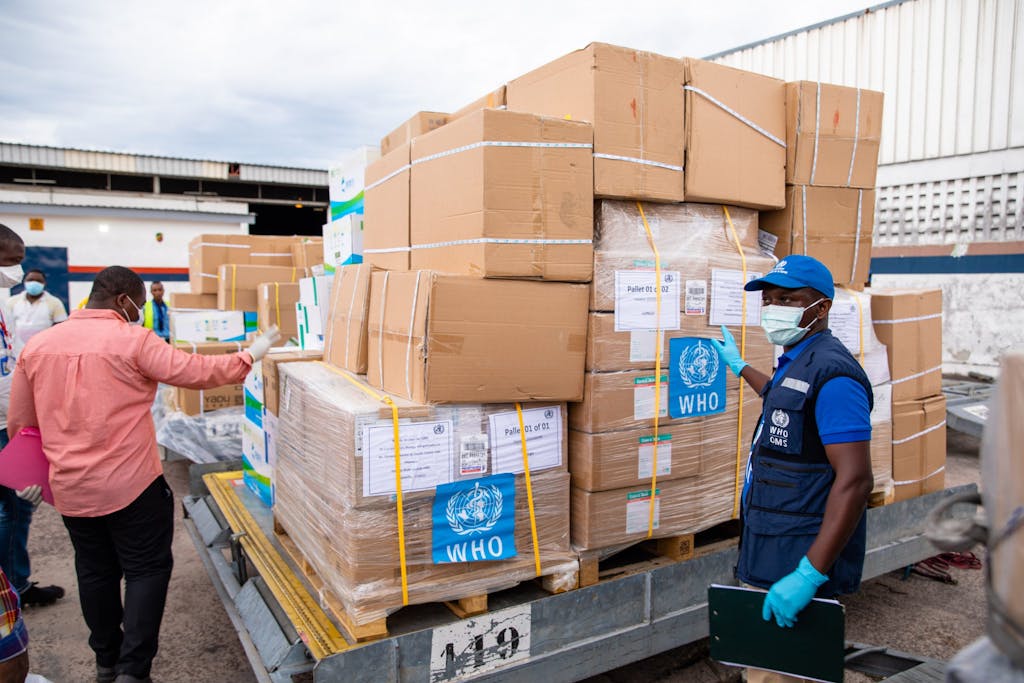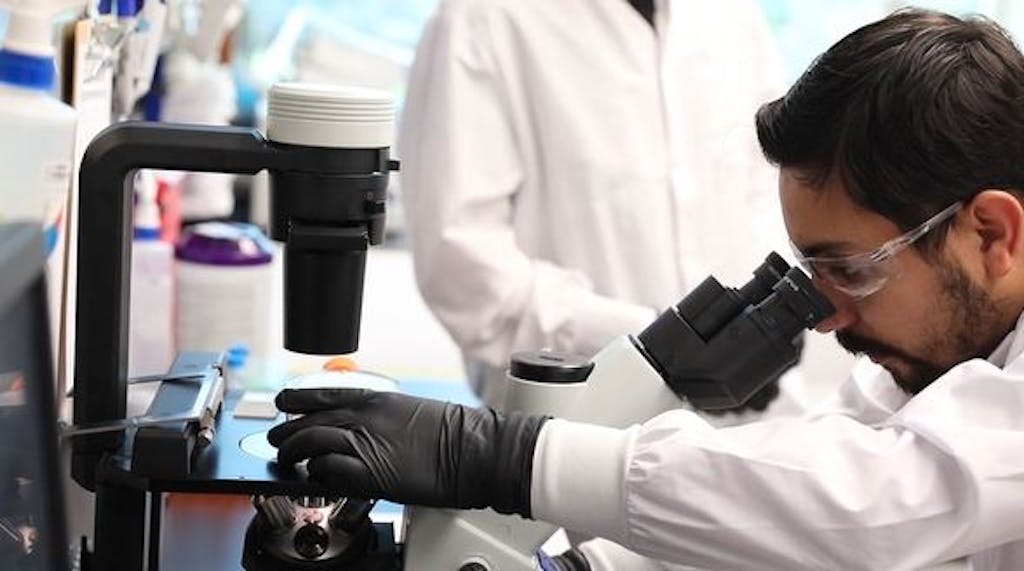How do you end a global pandemic?
You start by equipping the doctors and nurses who care for the critically ill. At the same time, you support the scientists working on medicines to treat the disease and vaccines to prevent it.
You also figure how to manufacture a massive amount of vials, needles, and doses required to immunize the entire world, especially those hardest to reach.
If the virus is new, you study how it spreads by compiling as much data as possible, from as many places as possible, as often as possible. Then you share your insights with the government and public, updating as new information is verified.
Each of these complex tasks requires a global network of people with decades of experience and knowledge.
And that’s why the World Health Organization (WHO) exists. It’s what the agency has been doing since its founding in 1948: providing global health information, supplies, and expertise where it’s most needed.
And donating to the COVID-19 Solidarity Response Fund is among the fastest and most effective ways to help WHO support those hit hardest by the pandemic. It’s one of the smartest investments you can make in the world’s future — and one of the most effective ways to contain the spread.
So far, more than half a million people from over 100 countries have donated to our Fund — and more are joining every day. The growing movement is helping UN agencies, led by WHO, tackle this unprecedented global threat.
Since the Fund’s launch in March, more than $231 million has been raised in fully flexible donations to support the global pandemic response. As a result, our Fund became WHO’s first — and remains the largest — contributor of flexible funding to buy and distribute testing kits, biomedical supplies, and personal protective equipment (PPE).
So what does that mean?
It means your generosity is helping doctors and nurses care for the sick and dying without becoming infected themselves. Your donations are helping vulnerable families — including refugees and those living in poverty — gain access to information, water, hygiene, and health supplies to stop the spread of the virus. Your support is helping scientists across the globe search for effective treatments and vaccines — and make sure they’re available to all.
Below is a snapshot of how donations to the Solidarity Response Fund are helping UN agencies — including UNHCR, UNICEF, and the World Food Programme (WFP) in addition to WHO — fight the global spread of COVID-19.

Protective Equipment
Through its global purchasing consortium, WHO has secured more than 150 million items of PPE — face masks, gloves, face shields — that are being shipped to 138 countries across the planet. WHO is also delivering an additional 100 million medical masks and 1 million respirators donated by the Jack Ma Foundation.
To handle such a massive volume of shipments, WHO is working with the World Food Programme, a sister UN agency that handles logistics for the international humanitarian community. WFP’s hub-and-spoke delivery system, which includes major warehouse depots in six strategic locations across the globe, has stepped up to transport health equipment from WHO as well as other essential items and humanitarian personnel that have been disrupted by the pandemic. In June alone, WFP dispatched nearly 15,000 cubic meters of COVID-19 cargo through these hubs. One cubic meter of PPE is equivalent to 32,500 clinical masks or 30,000 gloves.
These shipments are bound for countries and communities in need. In India, for example, UNICEF provided hand sanitizer to 75,000 health care workers and 2,000 sanitation workers as the country grapplies with a troubling spike in COVID-19 cases.
COVID-19 Testing
By leveraging their collective purchasing power, WHO, UNICEF, and the Global Fund to Fight AIDS, Tuberculosis and Malaria have procured close to 6 million COVID-19 diagnostic tests for 132 countries. As of June 30, nearly 400,000 of these tests had been delivered with an additional 1.4 million tests in transit to 40 countries. At the same time, 5.2 million sample collection kits were procured and delivered to 19 countries.
Donations to the Fund have also helped UNHCR test, treat, and contain the spread of COVID-19 among refugees and migrants — one of the most vulnerable populations to COVID-19 due to the lack of reliable access to water, hygiene, and sanitation that often accompanies displacement. In Uganda, for instance, UNHCR is covering the costs of medical supplies, PPE, site management, food, and logistics for 18 quarantine facilities in refugee settlements and transit centers across the country.
Up-To-Date Information
Issuing technical guidance on the prevention, detection, and treatment of COVID-19 remains a crucial part of WHO’s global pandemic response. World leaders, doctors, scientists, and citizens across the globe rely on WHO for the unparalleled scope of its data collection.
Using science-based evidence, the agency consistently shares information with communities around the world about how the virus behaves and responds to certain treatments. Since January, the agency has launched 103 online training courses in 34 languages to educate officials, health care providers, and the public about the new coronavirus that the international scientific and medical communities are working around-the-clock to better understand.
Donations to the Fund are helping WHO and sister UN agencies UNICEF and UNHCR reach the most vulnerable with this vital information. In the Democratic Republic of the Congo, for example, UNICEF helped the country battle simultaneous outbreaks of COVID-19, Ebola, and measles by training hundreds of community leaders about disease prevention and detection. The agency also set up a COVID-19 hotline that managed an average of 4,400 calls per day since it began.

Vaccine Research
WHO, the Coalition for Epidemic Preparedness Innovations (CEPI), and Gavi, the Vaccine Alliance, in June launched COVAX, a collaboration to develop and supply everyone, everywhere with vaccines against COVID-19.
COVAX’s mandate is to harness the strengths of each organization — WHO’s technical and scientific expertise, CEPI’s leadership in vaccine research and development, and Gavi’s experience in revolutionizing access and delivery — to ensure accelerated development, manufacturing, stockpiling, procurement, and fair allocation of up to 2 billion doses of a licensed vaccine by the end of next year.
COVAX will work to ensure equitable access to COVID-19 vaccines for all countries, at all levels of development, that wish to participate. COVAX represents one of the four pillars under the Access to COVID-19 Tools (ACT) Accelerator.
Of the 224 COVID-19 vaccine candidates in development around the world, six of the 16 vaccine programs now in clinical trials have received funding from CEPI: Clover Biopharmaceuticals and CureVac, alongside our partners Moderna Inc., Novavax Inc., the University of Oxford and AstraZeneca, and Inovio.
Global Access
In the race to discover an effective vaccine against COVID-19, the world is already seeing attempts by world leaders to hoard intellectual property rights and supplies for their country’s citizens above all others.
But as Winnie Byanyima, the executive director of UNAIDS, recently put it, what is needed is a “people’s vaccine” — one that is available to everyone, everywhere, not just the wealthy and powerful. As she points out, one of America’s most celebrated scientists spoke out against profiteering from vaccines:
When the American virologist Jonas Salk was asked who owned the patent to the polio vaccine he developed, he famously replied: “There is no patent. Could you patent the sun?”
WHO is working to avoid such “vaccine nationalism” by launching initiatives to ensure the equitable access and distribution of tools, vaccines, and information to combat COVID-19. The Fund is supporting a number of these initiatives, including:
- The COVID-19 Technology Access Pool — a global system in which knowledge and intellectual property about the virus can be shared for the benefit of all.
- The ACT Accelerator — a global partnership of governments, companies, and civil society organizations collaborating to boost the speed, scale, and equitable distribution of effective COVID-19 treatments and tools.
WHO is also working with the private sector to finance the rapid expansion of manufacturing capacity for vials, vaccines, and doses to meet the historic demand.
“The ultimate measure of success will not be how fast we can develop tools — it will be how equally we can distribute them,” WHO Director-General Tedros Adhanom Ghebreyesus has said.
Then, Now, Next
Since the UN’s founding in the aftermath of World War II, its earliest mission was delivering food, medicine, and supplies to communities recovering from the conflict.
Now, in 2020 — exactly 75 years later — the UN is once again responding to a global crisis that threatens our collective future and the most vulnerable among us.
And you can help.
Join our solidarity movement by supporting the global response to COVID-19. Every donation makes a difference.
Donate to the COVID-19 Solidarity Response Fund.
Featured Photo: ©AstraZeneca



 View All Blog Posts
View All Blog Posts


